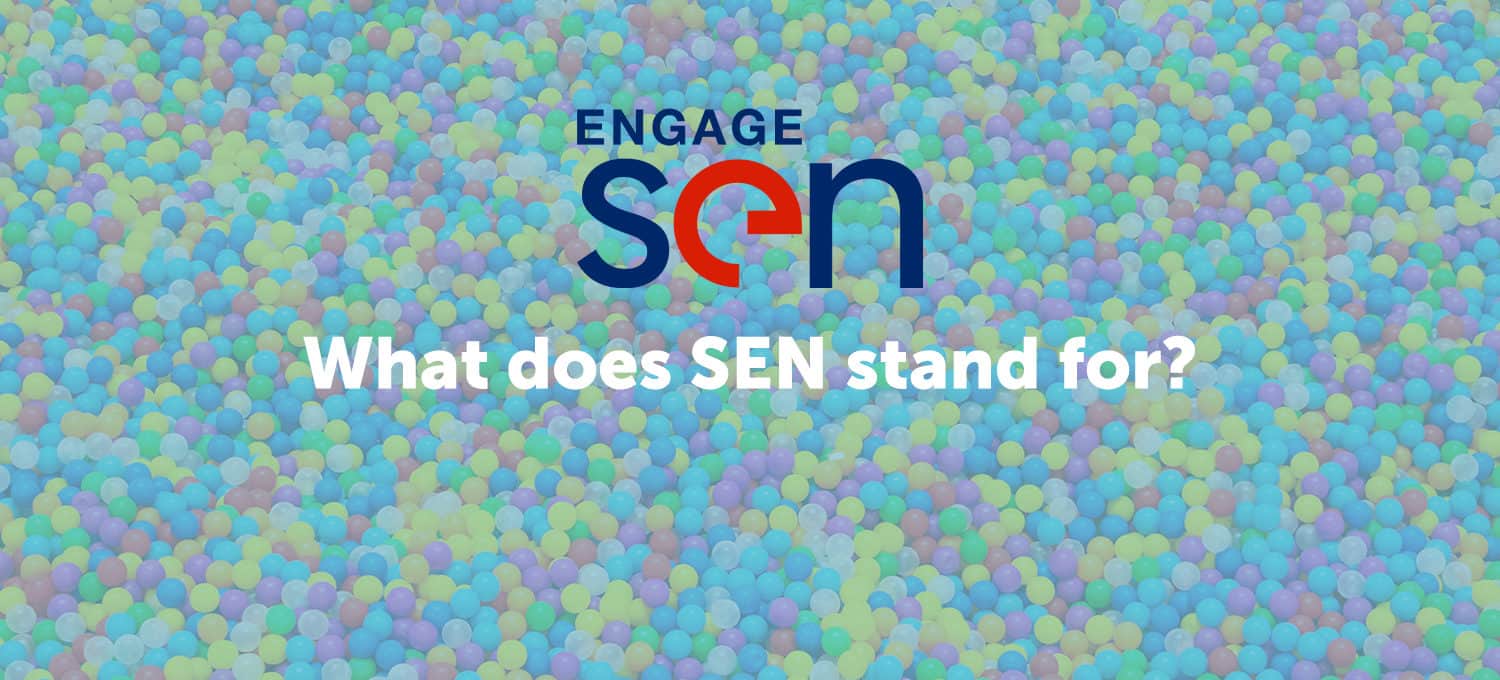
8th November 2019
What does SEN stand for?
Special Education Needs (SEN) is a legal term to define the needs of a child who has a difficulty or disability which makes learning harder for them than for other children their age, and requires special education provision to be made for him or her. Around 1 in 5 children has a Special Education Need at some point in their school life, and some will have SEN for the duration of their time at school.
Every school has a SEN Coordinator, or SENCO, who is responsible for ensuring that the needs of SEN pupils are met.
SEN or SEND?
SEN stands for Special Education Needs, whereas SEND stands for Special Education Needs and/or Disabilities. The term SEND is more inclusive, and it is the term we use here at Engage, as it is a catch-all acronym to include pupils who do not have special learning needs, but do need extra provision due to a physical or sensory disability (for example, pupils who are deaf or need assistive devices such as a wheelchair or crutches to get around).
How do you know if a pupil has SEN?
Some pupils who require extra support will have an Education, Health & Care Plan (EHCP) – a legal document which describes a pupil’s Special Education Needs. This document is written and provided by the Local Authority (LA) in order to give pupils the help they need to reach their potential. The SEND code of practice is also a great way to identify if a pupil requires extra support.
Download the SEND Jargon Buster
When discussing and reading about SEN(D) you will undoubtedly come across many acronyms and other jargon, which can be confusing – no matter how long you’ve worked within SEND provision.
At Engage, we’ve developed a fantastic SEND jargon buster, which you can download here. Print it out by your desk, or just keep a copy on your device, and never get stuck again!
Further reading:
- Children and Families Act 2014
- Special Education Needs and Disability Regulations 2014
- Schools, colleges and children’s services SEND archive
Working in SEND changes lives. You can too.
Teachers and support staff who work with Engage have spent over 700,000 hours in more than 3,400 vacancies in SEND schools, changing lives and meeting the various and often complex needs of SEND pupils.
Whether you have years of SEND experience, or you’re just starting out, find out how you can have an impact by registering today. Your own personal SEND consultant will work with you hand in hand to find your dream job in a SEND vacancy.
Working in SEND changes lives. You can too.
Whether you have years of SEND experience, or you’re just starting out, find out how you can have an impact by registering today.
Register today!Recommended for you
Importance of SEND inclusion in mainstream schools
With reports of SEND pupils being increasingly “pushed out” of mainstream schools...
- SEND
- •
- 3 Min Read
Do I need a qualification to work in a SEND school as a teaching assistant?
What is SEND? SEND stands for Special Educational Needs and Disabilities. SEND...
- SEND
- •
- 3 Min Read
4 areas of SEND: Sensory
Sensory & Physical Needs When a child is born, we expect them...
- SEND
- •
- 3 Min Read


